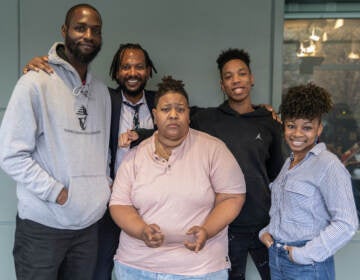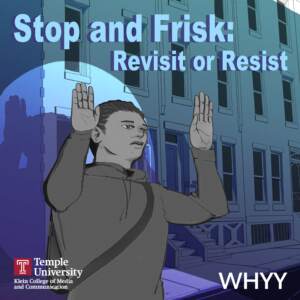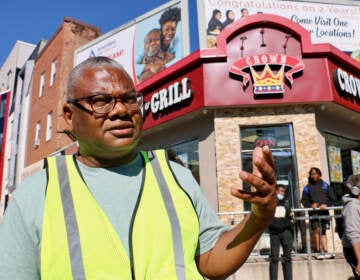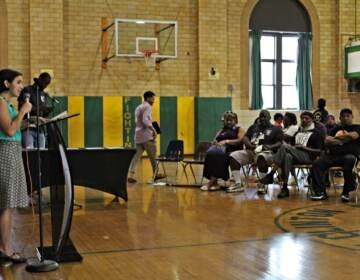5 solutions to Philly’s gun violence crisis
Guest hosts Sam Searles and Kole Long asked two community leaders, a clinician, a high school student, and a city public safety staffer for their solutions to gun violence.
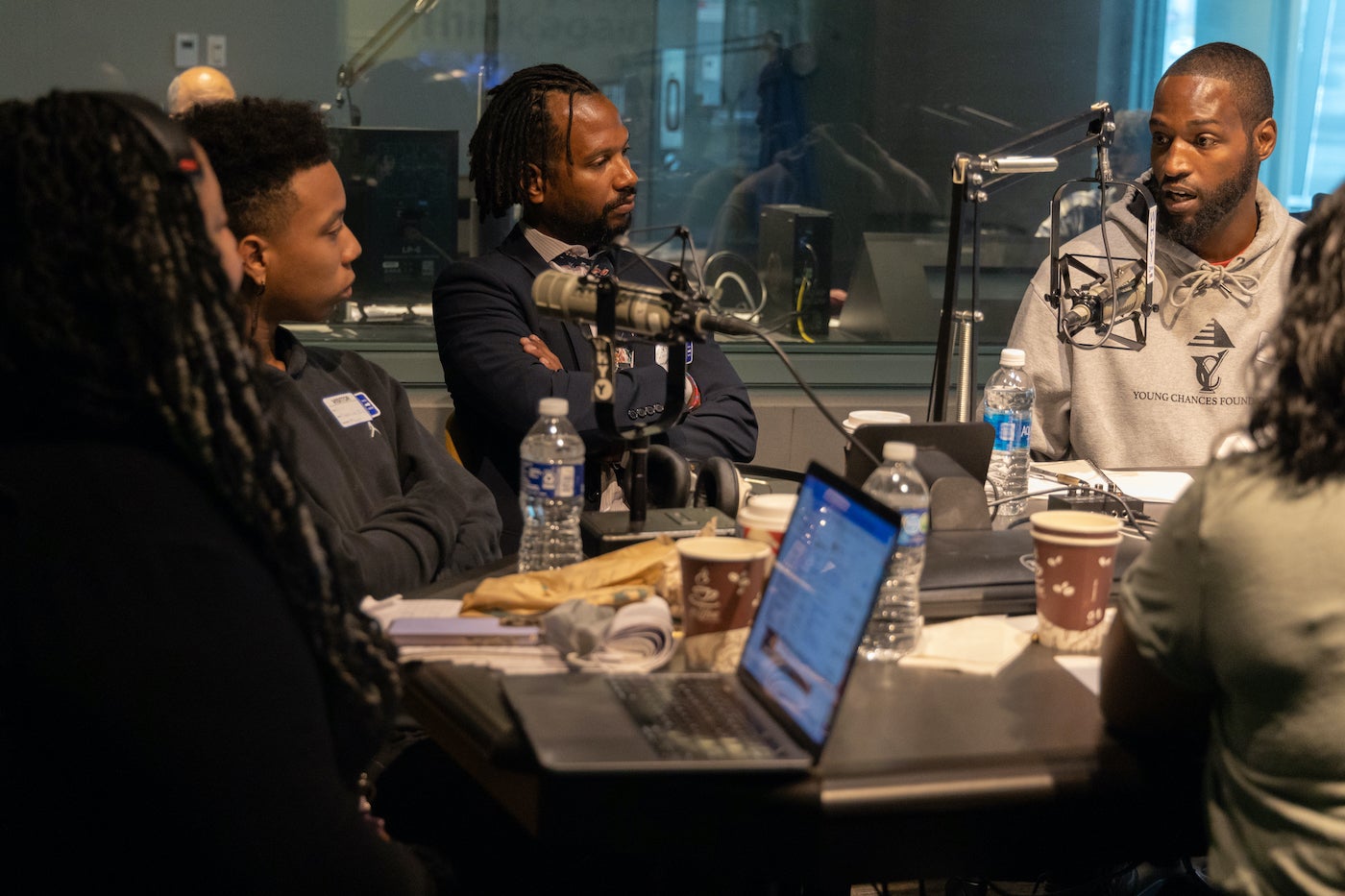
Tyrique Glasgow, right, shares insights about curbing Philadelphia’s gun violence crisis. He participated in the “Stop and Frisk: Revisit or Resist” podcast’s episode five roundtable discussion along with a high school student, activist, clinician, and city staffer. The group came together to discuss ideas and solutions on improving community policing, combatting hunger, expanding mental wellness services, and empowering youth.(Kimberly Paynter/WHYY)
This story is from Stop and Frisk, a podcast production from WHYY News and Temple University’s Logan Center for Urban Investigative Reporting
Find it on Apple Podcasts, Spotify, or wherever you get your podcasts.
Philadelphia officials, nonprofit groups, philanthropies, and academic institutions are trying a wide range of strategies to solve the city’s gun violence crisis, from funding community-based programs to hosting healing events to forming youth steering committees. Still, there have been roughly 1,750 nonfatal shootings this year as of mid-December — approaching more than 1,800 in 2021, according to police data — and the number of total homicides, most of which are committed with a firearm, has nearly doubled since 2015.
Some City Council members are looking at more policing as an answer to the problem, even suggesting the controversial practice stop and frisk. Listen to “Stop and Frisk: Revisit or Resist,” a podcast from WHYY News and Temple University’s Logan Center for Urban Investigative Reporting, to learn about the history of the policy and why it’s emerged in conversations about reducing gun violence in Philly.
In Episode 5, guest hosts Sam Searles, WHYY gun violence prevention reporter, and Kole Long, a Temple University student, asked two community leaders, a clinician, a high school student, and a city public safety staffer about potential solutions to gun violence.
Here’s a short list of ideas from the featured speakers:
1. Improve food security and health access
“The number one most important meal of the day is breakfast — fresh fruits and vegetables. What’s the access to it in urban neighborhoods? And asthma, because of unclean air — what’s the access to good asthma pumps?”
– Tyrique Glasgow, Young Chances Foundation
“Something I’ve seen work very well is community gardens. I think that they bring the community together and it helps a lot, especially when it’s a food desert … It not only gives you that access to good foods … but it brings the community together and makes it tightly knit and it just helps overall.”
– Taahzje Ellis, 16
Where it’s happening: Urban Creators builds community gardens in low-income neighborhoods and runs educational programming for residents. Philabundance and mutual aid groups help people with basic needs across the city.
2. Provide community members with de-escalation training
“We’re just giving you an outline of what [police] can and cannot do and how to approach that. … The Black Panthers back in the day, they used to have little pamphlets to teach people in the community. That’s community policing, teaching them policy, teaching them laws, and teaching them how to communicate it.”
– Ajourdi Hargrove, ACLU of Pennsylvania
Where it’s happening: The ACLU of Pennsylvania runs a program that sends trusted community members to educate people about how to interact with police. There are also de-escalation trainings that teach participants how to calm down situations with people they might encounter in the community. Healthy Minds Philly offers mental health first aid training to show residents how to interact with people in crisis.
3. Expand police/community partnerships
“We need better relationships, not worse relationships, with the community so we can get the information as to this very small amount of people who are causing all the problems, and then deal with them.”
– Adam Geer, Deputy nspector General for the city of Philadelphia
“They have programs and after-school activities where they try to bridge the gap through baseball, golf, and all those little things. But for us it’s really conflict resolution, it’s really hosting those things that is outside the box.”
– Tyrique Glasgow, Young Chances Foundation
Where it’s happening: The city’s Police District Advisory Council program brings together community members and officers for monthly meetings about quality-of-life issues in the neighborhood. Police Athletic Leagues give young people a chance to interact with officers in an informal setting.
4. Create space for wellness and meditation
“Identity development, especially among Black people. My mom made it her mission to make sure I understood I was very empowered as a young Black person, that I knew the Black history that wasn’t being taught in schools, and my self-esteem was always very high … it’s important that we focus on identity development with young people.
– Diamond Walker, child and adolescent therapist with the Anti-Violence Partnership of Philadelphia
“We have to start tapping into our spirituality and wellness, so more wellness spaces because gardening is a part of wellness. And what wellness looks like can come in so many different shapes, forms and sizes … we have to start taking the time out to breathe, really stop and breathe.”
– Ajourdi Hargrove, ACLU of Pennsylvania
Where it’s happening: Up the Block Philadelphia offers a list of wellness resources tailored for people impacted by gun violence.
5. Increase funding and evaluation of grassroots organizations
“A lot of grassroot organizations are doing the work, and they’re not getting funded. They’re not getting the resources to maintain those programs.”
– Tyrique Glasgow, Young Chances Foundation
Where it’s happening: The city of Philadelphia has awarded five rounds of Targeted Community Investment Grants to community groups. They are also distributing about $13.5 million to community organizations through the Community Expansion Grant program. The city has hired outside analysts to evaluate the expansion grant program.
If you or someone you know has been affected by gun violence in Philadelphia, you can find grief support and resources online.
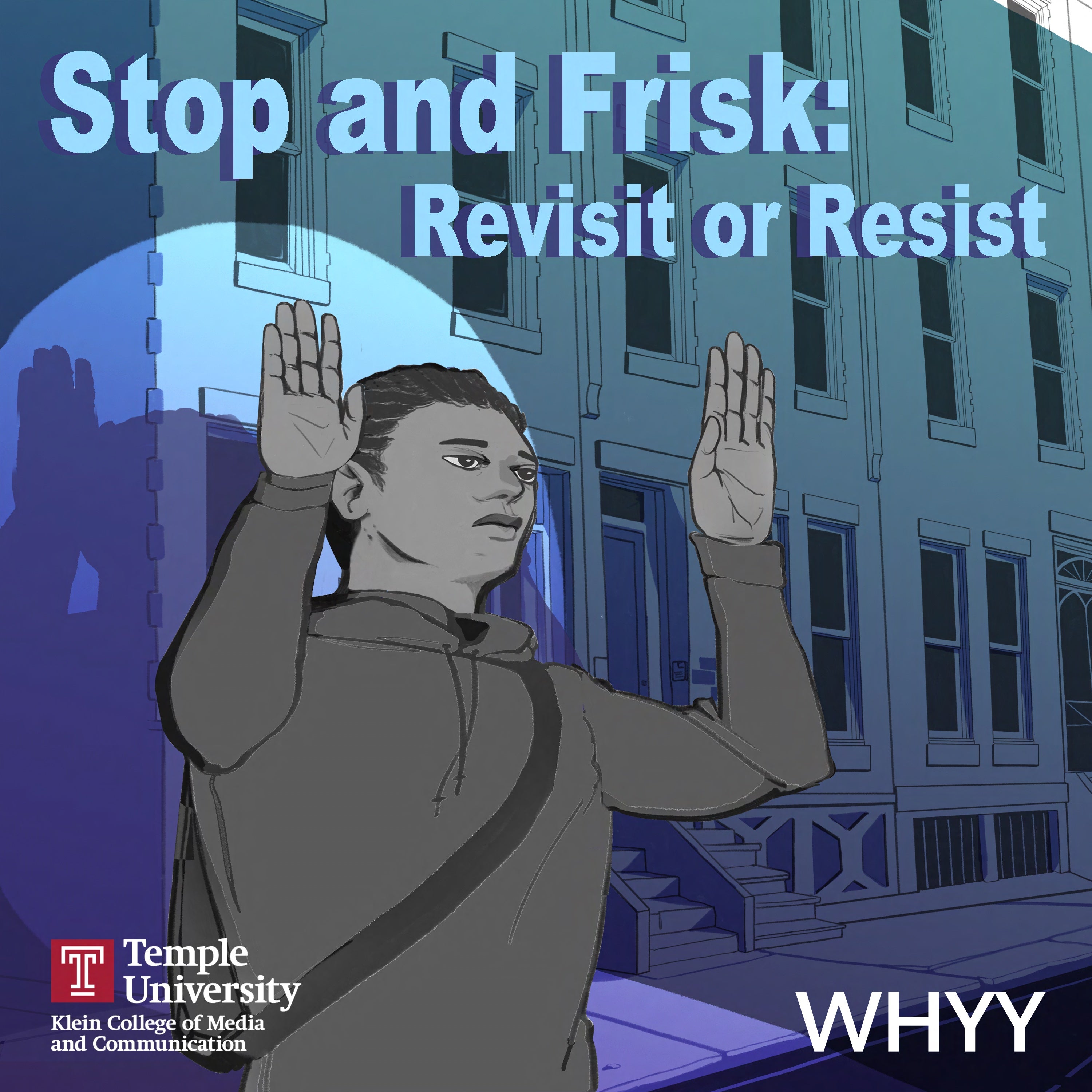
Stop and Frisk: Revisit or Resist
WHYY is your source for fact-based, in-depth journalism and information. As a nonprofit organization, we rely on financial support from readers like you. Please give today.


